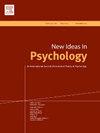An “orthorexic society”: The role of psychological flexibility in responding to healthy eating pressures
IF 2.9
3区 心理学
Q2 PSYCHOLOGY, EXPERIMENTAL
引用次数: 0
Abstract
In some countries, public health policies and social networks are contributing to making people more responsible for their own health by promoting healthy eating. This context of “healthism” has witnessed the development of orthorexia nervosa. Described as an eating disorder based on an obsession with healthy eating, orthorexia nervosa is not yet included in diagnostic manuals. A central issue in the study of orthorexia is how it differentiates from other eating disorders and how to identify it among the growing number of healthy diets. Flexibility seems to be relevant for distinguishing between the adaptive and pathological forms of adherence to eating habits perceived as healthy. In this respect, psychotherapeutic interventions linked to flexibility are a promising path to support people with orthorexic symptoms, regardless of disorder categorization. Flexibility could also be integrated into the way dietary recommendations are devised, in order to promote the overall physical, psychological and social health.
一个“正统社会”:心理灵活性在应对健康饮食压力中的作用
在一些国家,公共卫生政策和社会网络通过促进健康饮食,促使人们对自己的健康更加负责。这种“健康主义”的背景见证了神经性厌食症的发展。神经性厌食症被描述为一种基于对健康饮食的痴迷的饮食失调,目前还没有包括在诊断手册中。正食症研究的一个核心问题是它如何与其他饮食失调症区分开来,以及如何在越来越多的健康饮食中识别它。灵活性似乎与区分适应性和病理形式的坚持被认为是健康的饮食习惯有关。在这方面,与灵活性相关的心理治疗干预措施是一条很有希望的途径,可以支持有正统厌食症症状的人,无论其障碍类别如何。灵活性也可纳入制定饮食建议的方式,以促进整体的生理、心理和社会健康。
本文章由计算机程序翻译,如有差异,请以英文原文为准。
求助全文
约1分钟内获得全文
求助全文
来源期刊

New Ideas in Psychology
Multiple-
CiteScore
4.80
自引率
3.80%
发文量
37
期刊介绍:
New Ideas in Psychology is a journal for theoretical psychology in its broadest sense. We are looking for new and seminal ideas, from within Psychology and from other fields that have something to bring to Psychology. We welcome presentations and criticisms of theory, of background metaphysics, and of fundamental issues of method, both empirical and conceptual. We put special emphasis on the need for informed discussion of psychological theories to be interdisciplinary. Empirical papers are accepted at New Ideas in Psychology, but only as long as they focus on conceptual issues and are theoretically creative. We are also open to comments or debate, interviews, and book reviews.
 求助内容:
求助内容: 应助结果提醒方式:
应助结果提醒方式:


